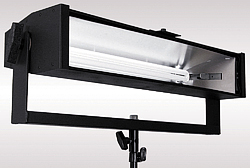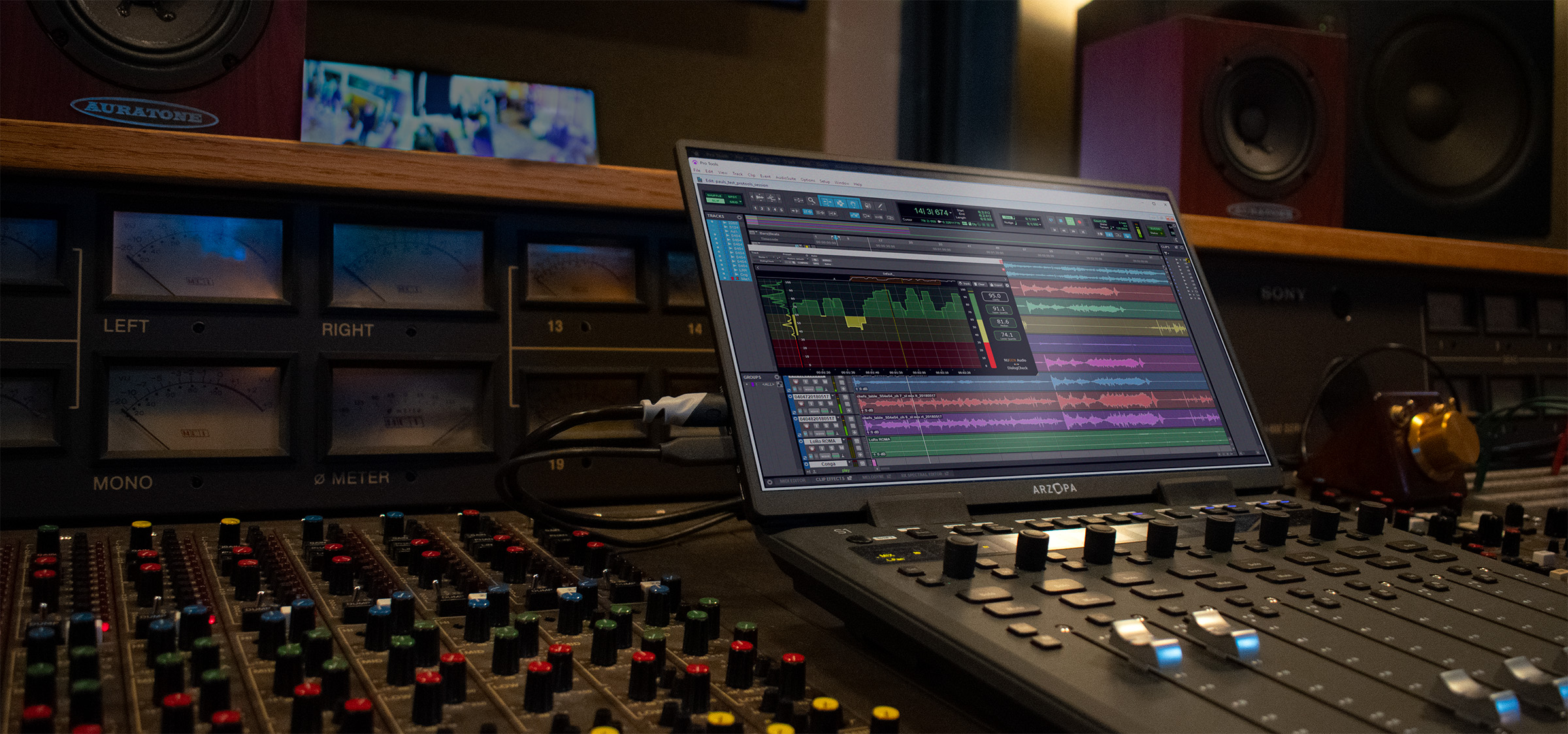Videssence Lighting Shines at Duquesne U
by Dennis Woytek
PITTSBURGH With the fall semester's opening of the Caulfield Studio, students in the Department of Journalism and Multimedia Arts at Duquesne University here now have the opportunity to experience the feel of working in an actual television studio. It's a complete television production facility, and one that will greatly benefit the department and the university by providing video production services that support the teaching, research and service mission of the school. In the studio environment, students practice live productions in the form of interviews, narratives, instructional programs and news reports.
USED IN-HOUSE SERVICES FOR PROJECT

One of the Videssence fixtures used in the new television studio project at Duquesne University We edecided to conduct the design and planning for the studio in-house here at Duquesne, and this involved not only the electrical and mechanical departments, but also the physical plant department. The choice of an energy-efficient lighting system was paramount in our design. Also, the lighting system that we chose would have to have sufficient flexibility to accommodate a news set, a green screen area and an interview set.
Coordination for the project began when a graduating student's family contributed a fairly substantial amount of money for the construction of a studio. Not long after the design for the spaces was completed, the construction phase of the operation began with demolition of a large, high-ceiling classroom.
It was established that a large part of the technical planning would be dictated by the working budget available, a budget that we found would have to be increased after discovering that additional funds would be needed just for the construction alone. We decided that we could save money with a painted floor, a smaller switcher and less expensive cameras than originally planned, but there was one area in which we knew we couldn't skimp, and that was lighting.
EFFICIENCY IN LIGHTING CUTS ENERGY COSTS
Videssence answered our request for a plan; one that was flexible and efficient. It addressed the present day high energy costs for traditional lighting and the associated requirement for removal of the heat load such studio illumination systems generate. This led the design team to abandon older television lighting systems and adopt an approach that is being used in many progressive television and production studios—Videssence fluorescent lighting.
PUTTING THE PIECES ALL TOGETHER
The installation of the studio's lighting grid was timed to coincide with the completion of electrical circuit wiring and the addition of spray-on insulation in the ceiling. After the lighting grid was in place, the task of installing the fluorescent fixtures and their aiming was turned over to Videssence's Gary Thomas.
Two styles of the company's patented Power Key fixtures were used in the studio, along with phase control dimming. The one-lamp and two-lamp fixtures Videssence provided are extremely versatile in our studio applications, due to their provision for adjustment of their illumination beam spread.
We are extremely pleased that our studios are now equipped with such state-of-the-art equipment and that our students are exposed to this technology as part of their training. The flexibility of the lighting package and control system that Videssence provided for the new studio has resulted in a showcase operation; one that we are proud to offer for public viewing via a large window.
Dennis Woytek is the assistant professor of Multimedia Arts at Duquesne University. He has been involved in radio and television production and broadcasting for more than 40 years. He may be contacted at woytekd@duq.edu.
For additional information, contact Videssence at 626-579-0943 or visit www.videssence.tv.
Get the TV Tech Newsletter
The professional video industry's #1 source for news, trends and product and tech information. Sign up below.
